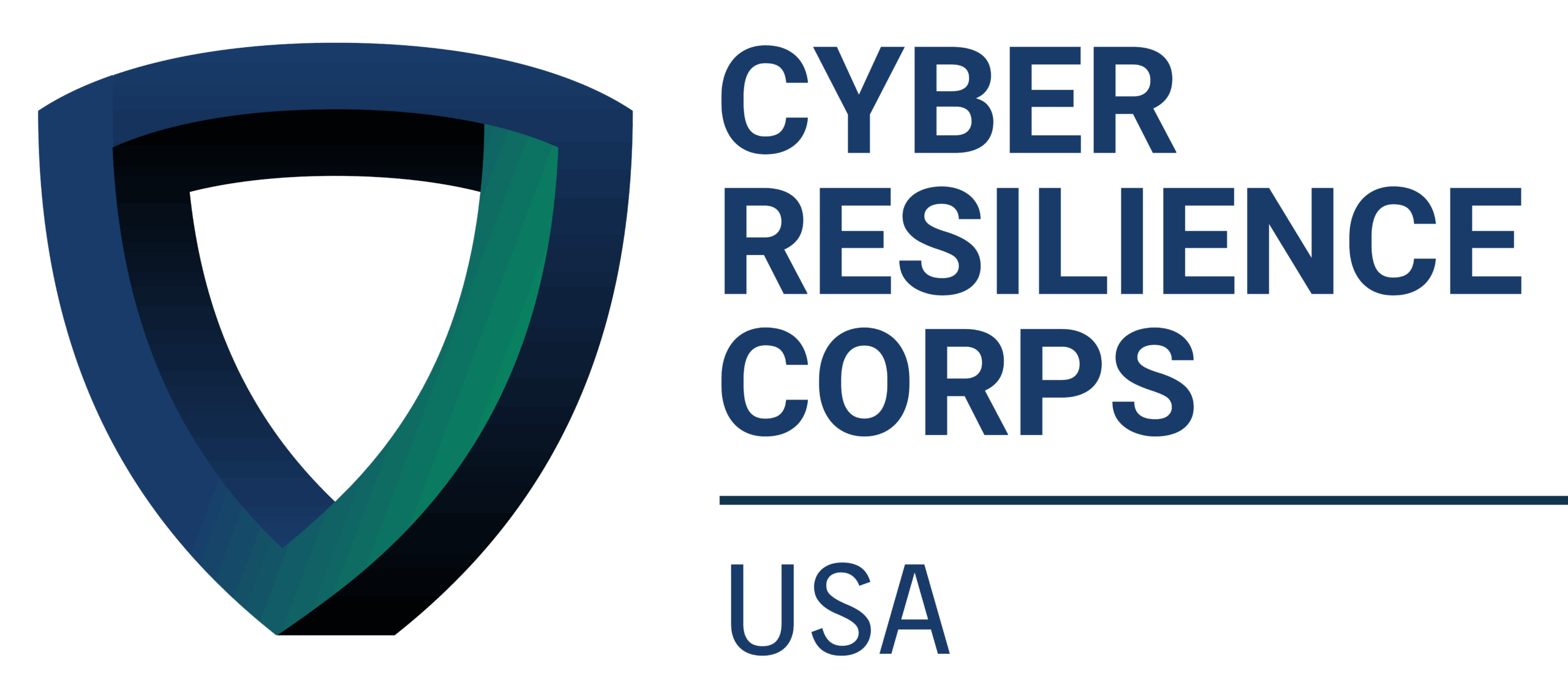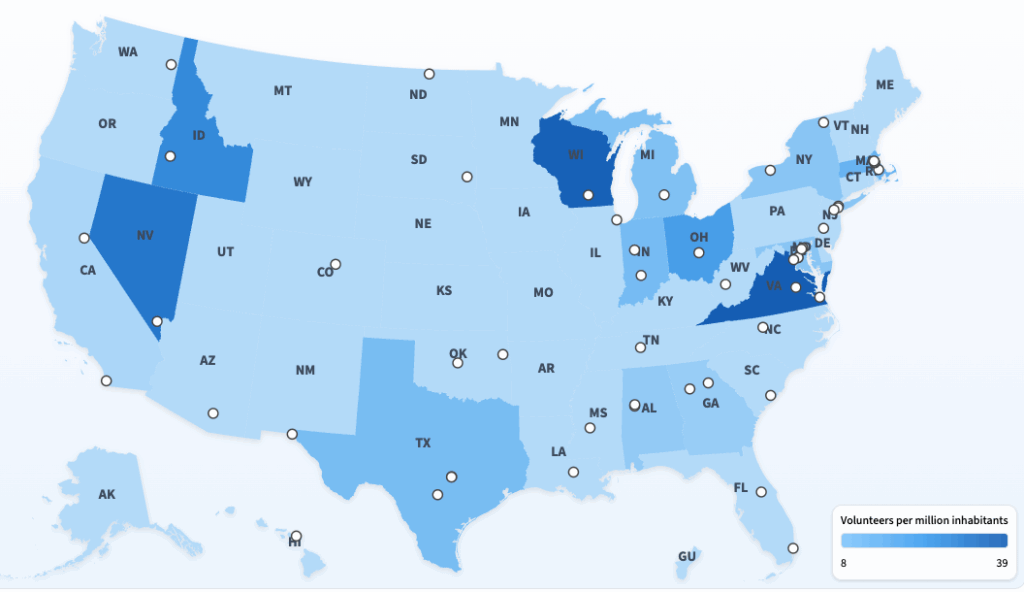Ann Cleaveland


The Cyber Resilience Corps is mobilizing a nationwide force of cyber volunteers to defend the organizations that power our communities—nonprofits, rural hospitals, schools, municipalities, and small businesses.
Led by UC Berkeley’s Center for Long-Term Cybersecurity and the CyberPeace Institute, this initiative unites and strengthens volunteer efforts to deliver real, hands-on cybersecurity support where it’s needed most.

Today, cybersecurity is a lonely road for many. Community organizations — nonprofits, rural hospitals, schools, local utilities, counties, municipalities, and small businesses — are vital to delivering essential services to the public, but they are often the least prepared to protect themselves from cyberattacks and are often wholly responsible for their own defense. Hands-on support from a broad coalition of groups is needed to provide a safety net that strengthens these organizations’ cyber defenses, ensuring they can continue their vital work securely and without disruption.

As the first step in implementing the Roadmap’s recommendations, the Cyber Resilience Corps has developed the Cyber Resilience Corps Platform, a hub for cyber volunteers and community organizations seeking assistance to connect, marking a significant first step towards filling ecosystem gaps and securing our communities.
On October 23rd, 2025, CLTC and Wisconsin Emergency Management hosted cyber defenders from across academia, state government, and civil society for the first-of-its-kind Cyber Volunteering Day. Held at the University of Wisconsin, in Madison, and made possible by Craig Newmark Philanthropies and Okta for Good, the event was an opportunity for boots-on-the-ground cyber defenders to share best practices and expand services for community infrastructure. This was the first time that state cyber corps leaders and cyber clinics across the country were in the same room together. Read our recap of the event here — and see how the event was covered in GovTech.
The Cyber Resilience Corps has been featured in articles, podcasts, and op-eds. Follow the links below to read more!
Lawfare‘s Justin Sherman spoke with Sarah Powazek, Director of CLTC’s Public Interest Cybersecurity Program, and Michael Razeeq, Nonresident Fellow at the Public Interest Cybersecurity Program, about the cyber threats facing states, what options and resources states currently have to address cybersecurity problems, and how the concept of state cyber corps and volunteer programs fits into the picture.
Firewalls Don’t Stop Dragons Podcast
On this podcast, Carey Parker interviewed Michael Razeeq, Grace Menna, Senior Research Fellow at CLTC, Adrien Ogee, Chief Operations Officer at the CyberPeace Institute, and Eric Franco, Cybersecurity Preparedness Coordinator for Wisconsin Emergency Management, about the role of cyber volunteers in Cyber Resilience Corps in helping under-resourced organizations defend themselves online.
In June 2025, CyberScoop’s Derek Johnson wrote an article spotlighting the Roadmap to Community Cyber Defense, a report marking the culmination of the first year
of operations of the Cyber Resilience Corps.
Government Technology (GovTech): Cybersecurity Experts Seek to Build Volunteer Defense Force
GovTech’s Thad Rueter wrote an article about the first-ever Cyber Volunteering Day, held in October 2025 in Madison, Wisconsin.
Aspen Digital: States are Leading on Cyber Volunteering
CLTC’s Grace Menna and Sarah Powazek wrote an op-ed published in Aspen Digital that spotlighted the growing role of states in leading coordinated cyber volunteer response. “States and communities have rallied cyber volunteers to serve the least-resourced organizations. One of the best investments that industry leaders, nonprofits, and individual cyber volunteers can make in the coming years is to help states double down on creating a cyber safety net where any organization can receive affordable cybersecurity services.”
Community volunteers can protect our most under-resourced organizations

Nonprofits, schools, rural hospitals, and small businesses are increasingly targeted by phishing, ransomware, and data breaches. Lacking affordable cybersecurity solutions, many don’t know where to start—making volunteer support essential.

Cyber volunteers play a vital role in defending at-risk organizations by providing expert support through university cyber clinics, nonprofits, and government programs. Their trusted relationships and specialized skills help strengthen community cyber defenses.
Expanding on CISA’s Volunteer Resource Center, we combine active collaboration, shared intelligence, and a structure for building out new shared resources, including an online cyber volunteering coordination platform and “roadmap” for sustainable community cyber defense.
By standing together against evolving cyber threats, we’re building a resilient digital future—one where critical services remain secure and communities thrive. Join us in turning cyber defense into a movement for lasting impact.
As the first step in implementing the Roadmap’s recommendations, the Cyber Resilience Corps has developed the Cyber Resilience Corps Platform, a hub for cyber volunteers and community organizations seeking assistance to connect, marking a significant first step towards filling ecosystem gaps and securing our communities. Access the platform at https://www.cybervolunteers.us/en

Major cyber volunteer networks and allies actively share best practices, fill service gaps, and participate in robust nationwide collaboration.

Community organizations can more easily access tailored cybersecurity support from volunteers.

Partnerships to grow and strengthen cyber volunteer pools in high-need regions.
Our thanks to Craig Newmark Philanthropies for foundational support. Contact cltc@berkeley.edu to inquire about additional funding opportunities for the Cyber Resilience Corps, including sponsorship of upcoming convenings and published tools.